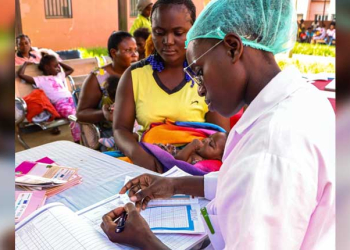Islamabad: The catastrophic flood situation in Pakistan will highly likely increase the spread of disease, says the World Health Organization (WHO), as the country continues its relentless battle against the deadly deluges.
In its latest situation report on flooding in Pakistan, the WHO pointed out that the heavy monsoon rain which started in mid-June are continuing in many parts of the country and have affected 116 districts (75 per cent) out of the total 160, Geo News reported.
The most affected province is Sindh, followed by Balochistan.
As of August 25, more than 33 million people have been affected and over 6.4 million people are in dire need of humanitarian aid, including 421,000 refugees, the WHO report highlighted.
More than 1,100 lives have been lost and almost 15,000 people injured.
The WHO report focused on what it called the “severe” impact on health facilities, stating that as of August 28, 888 health facilities have been damaged in the country of which 180 of them are completely damaged.
“Access to health facilities, health care workers, and essential medicines and medical supplies remain the main health challenges for now,” Geo News quoted the WHO report as saying.
Pakistan’s health system is already battling multiple concurrent health threats, including Covid-19, and outbreaks of cholera, typhoid, measles, leishmaniasis and HIV, the WHO said, adding that even before the current floods, there was a significant disparity in access to health services between rural and urban areas.
Meanwhile, health experts have sounded the alarm regarding the outbreak of disease in flood-affected areas, estimating around five million people to fall sick in the next four to 12 weeks.
IANS)



















